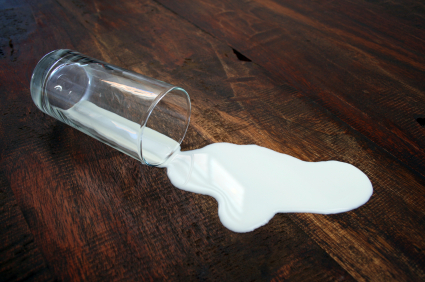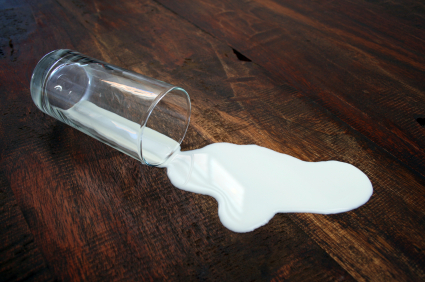 This post orginally appeared on The Ethicurean.
This post orginally appeared on The Ethicurean.
———————
Did you see that movie Flash of Genius? It follows the unlucky Robert Kearns, played by Greg Kinnear, as he spends his life (and his savings) perfecting the intermittent windshield wiper, only to have his idea snared and used without credit by the Ford Motor Company. He pursues lawsuits against Ford and other car companies out of principle, he says: It is simply not fair that all of his hard work enriches Detroit’s Big Three while leaving him and his family virtually penniless.
I’ve been thinking about that movie a lot lately as I’ve pondered what dairy farmers across the country are going through in this period of tragically low prices. Years of investment in land, equipment, and animals; years of hard labor; and what do you get for it? Nuthin’. Or, more precisely, you get about half of what you put into producing the milk you sell to dairy processors. The prices farmers receive right now are so low that they are rapidly exiting the market – or exiting life altogether (farmer-suicides are up this year, reports the LA Times). And just like in the movies, companies are profiting off their misery. Dean Foods, the nation’s largest fluid milk processor, reported record earnings in the first quarter of 2009; profits for Kraft’s cheese division rose 59% in the same period.
The movie ends with Kearns winning court battles against Ford and Chrysler, pocketing nearly $30 million for his hard work (most of which comes right back out again to cover attorneys’ fees for the other 26 lawsuits he pursued). Our nation’s dairy farmers have nothing so vindicating to look forward to. If things continue the way they’re going, reports Farm Aid’s Hilde Steffey, the U.S. risks losing upwards of 80% of its dairy farmers by year’s end, leaving us with just 12,000 dairy farms total. That’s 1 dairy for every 25,000 Americans.
The dairy crisis, and its solution, comes down to a question of fairness. Is it fair that large dairy companies are undercutting U.S. producers by importing cheap milk protein concentrates from other countries and using them instead of U.S.-produced milk? (And is it fair that the FDA does nothing to stop the practice, even though MPCs aren’t approved as a food ingredient?) Is it fair that the dairy industry is so consolidated that a few large companies can manipulate the price of milk to their own benefit, pocketing profits while dairy farmers are left holding the bag? Is it fair that farmers have shelled out more and more for feed and hay in the last few years, but the prices they receive for milk have fallen? Is it fair that consumers are still paying for milk what they were earlier this year, while farmers’ prices dropped 30% in January alone? Hell no!
There are a lot of things that need to be fixed here, but the most urgent task is to keep dairy farmers on the land while we figure out what to do about the rest. That’s where the government comes in. In 1937, when farmers were pouring milk out on the side of the road because of Depression-induced low prices, Congress passed a law that allows the Secretary of Agriculture to adjust the price of milk to reflect the price of feed and other economic conditions that impact their production costs. Well, if there ever was a time for the Secretary to roll out that authority, it’s now.
If Vilsack doesn’t do something, fast, Farm Aid predicts we could immediately lose up to 20,000 dairy farmers. Where does that leave us? With imported milk, empty farms, out-of-work farmers, and a whole lot of dairy cows with a future in fast-food hamburger. And that kind of milk does nobody good.




